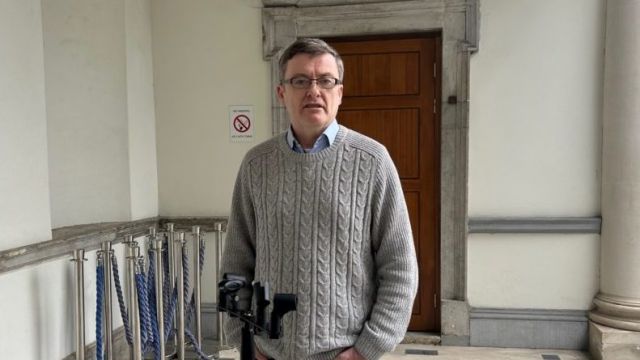Sinn Féin’s health spokesperson has said it is “unacceptable” that 14,000 patients left hospital emergency departments (EDs) without being treated in the first two months of 2023.
David Cullinane said there needs to be more follow up on reasons why people left hospitals without care.
He added: “My concern is that if we have people who are leaving emergency departments without getting any care, then there needs to be follow-up and there needs to be more data on why they left, what level of follow up was done.
“We can’t have situations where we have people who are being asked to go to emergency departments when they are sick when there is an emergency and then they’re waiting for huge lengths of time.
“We’ve seen examples of people are waiting five and six days in emergency departments at some hospitals.”
Outlining figures to the media, Mr Cullinane said the average wait time for admission to a bed in January and February was over 11 hours, but this could go up to 24 hours for patients over 75 in some hospitals.
“We just can’t accept as normal that hospital overcrowding, people leaving hospitals in droves because they can’t get access to care and people on hospital trolleys is somewhat acceptable,” he said.
Cancelled procedures
Mr Cullinane also said more than 41,000 hospital procedures had been cancelled “over the last couple of months”.
“So all of these indicators are telling us what we already knew: That overcrowding is having a big impact on patient care.
“We’re seeing wholesale cancellation of procedures which is one of the first casualties of overcrowding and hospitals.
“We’re seeing people wait far too long, many of them on trolleys and in corridors, as we know, and we’re also seeing people in the thousands leave emergency departments without access to care.
“And all of that are symptoms of the lack of capacity in our public hospitals that has been talked about for far too long.”
He said public hospitals do not have enough beds nor staff.
Mr Cullinane said one of the other reasons for pressures on emergency departments is that patients who should be treated and cared for in community settings, particularly people with chronic pain, can not get access to that care because of the lack of staffing for many of the specialist HSE community teams.
In addition, he said out-of-hours GP care and primary care is “beyond the reach” of many people depending on their location.
He added: “All of that lends itself to massive overcrowding, which in my view has gone on for far too long.
“And it’s got to a point now where it’s almost normal that we have four or five hundred patients a day on trolleys and we have this level of overcrowding, it’s an all year round problem.
“And it won’t be solved without a multiannual plan put in place to staff the beds and the surgical theatre and capacity, the other capacity that we need in hospitals.
“But also crucially to train more GPs, that we have greater community and primary care infrastructure that can take pressures off for acute hospitals.”







